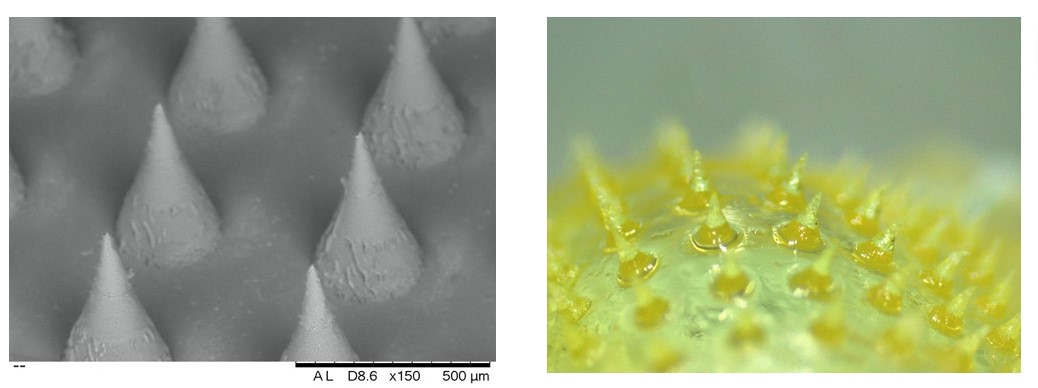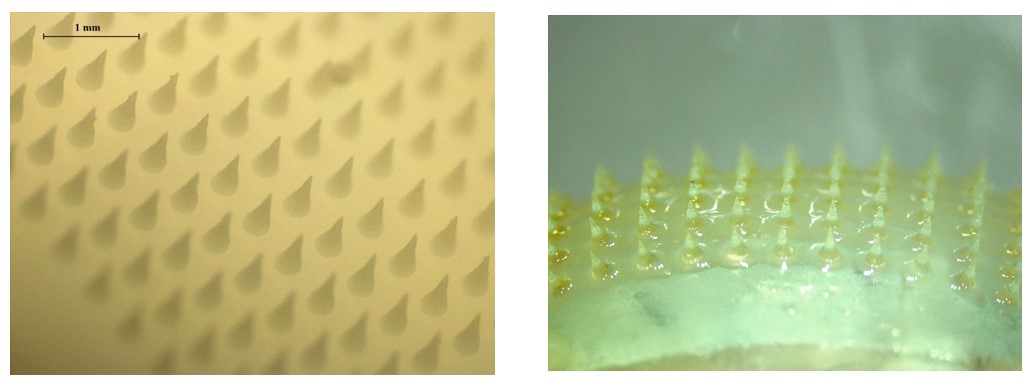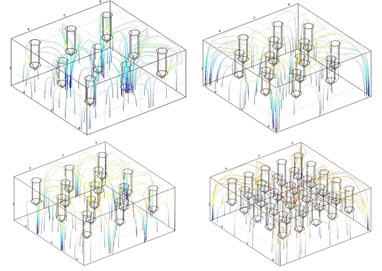Lack of commercialisation and limited availability means that the technology remains on the peripheries of medical science despite their ease of use and ability to painlessly deliver medication and vaccinations.
Now, a group of researchers from Loughborough University, Queen’s University Belfast and the University of Bath have partnered with pharmaceutical manufacturers and the National Physical Laboratory, to find ways to make them more available to patients worldwide.
A £1.2m project, Optimisation of microneedle insertion and understanding the implications of repeat application as tools to support translation, has been funded by the UK’s Engineering and Physical Sciences Research Council (EPSRC) and aims to accelerate the development of microneedles – also known as microarray patches.
The discreet patches contain dozens of microneedles that lightly penetrate the top layer of skin to deliver either rapid or controlled and continuous medication.
Their ability to effectively deliver biopharmaceuticals, which when taken orally are often broken down in the stomach and do not reach their target, could eliminate the need for injections and could have huge implications for medical care.
Cutting the number of injections administered in hospitals and GPs’ surgeries would reduce the workloads of NHS staff and allow them to focus on the diagnosis and treatment of diseases and illnesses, such as COVID-19.
However, mathematical modelling, simulation, and optimisation of microneedle patches are vital in achieving their desired performances.
 The tiny needles are less than half a millimetre long. Credit: University of Belfast
The tiny needles are less than half a millimetre long. Credit: University of Belfast
Loughborough’s Dr Diganta Bhusan Das said: “We have been working on modelling and optimization of all microneedle types for the last 15 years which have now matured significantly.
“In this particular project, we will be working on three different variations of polymeric microneedles, helping to push their applications beyond preclinical and clinical settings into real practices.”
Project leader Professor Ryan Donnelly from Queen’s School of Pharmacy said: “Our research to date has suggested that microarray patches will be an effective replacement for conventional needles for a number of indications, whether it’s slow-release delivery for HIV treatment or pain-free vaccination.
“If we can replace the need for a range of drugs and vaccines to be given by needle-and-syringe injection with a minimally-invasive and painless patch, healthcare organisations, such as the NHS, could soon benefit from reduced costs due to shorter hospital stays and more reliable drug dosing, resulting in enhanced patient quality-of-life.”
ENDS

